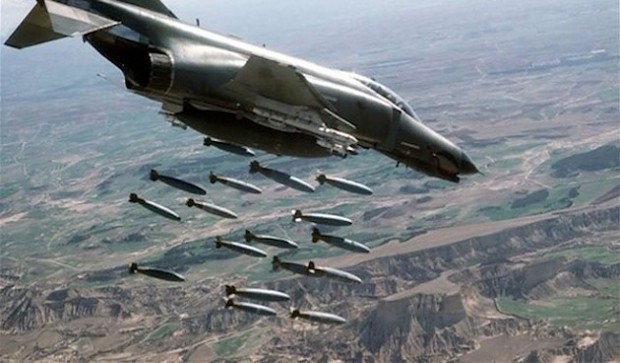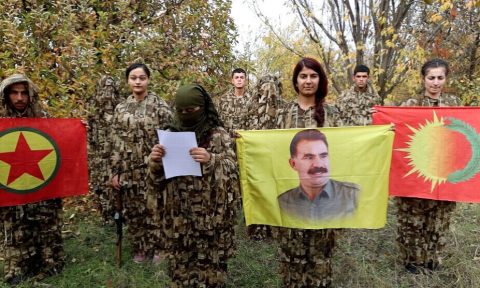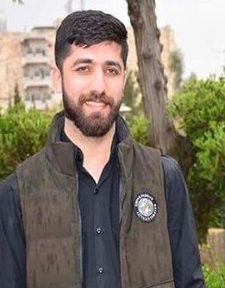Turkey carried out air strikes Tuesday in northern Iraq against rebel Kurdistan Workers’ Party (PKK) positions, causing casualties, authorities in Iraq’s autonomous Kurdistan region said.
“Turkish warplanes targeted several positions of Kurdistan Workers’ Party fighters,” particularly in the Makhmur and Sinjar regions, Kurdish counter-terrorism services said in a statement.
“Turkish military aircraft bombed six PKK positions in the Karjokh mountains,” said the statement.
It also referred to strikes on two positions in the Sinjar mountains and an adjacent area in neighbouring Syria, as well as two raids in the Shila area near Iraq’s border with Syria.
“According to reports, the bombings caused human and material losses,” the statement said, without specifying the number of dead or wounded.
The PKK, blacklisted as a terrorist group by Ankara and its Western allies, has been waging an insurgency against the Turkish state since 1984.
Turkish President Recep Tayyip Erdogan, who has threatened to “clean up” parts of northern Iraq, accuses the PKK of using the mountainous border area as a springboard for its insurgency.
Turkey also has a military presence in neighbouring Syria, where it has seized swathes of territory in successive military operation since 2016 that have mostly targeted another Kurdish rebel group.
Invasion and Occupation
Previous Turkish invasions into the autonomous region of northern Syria were carried out using jihadi mercenaries and followed by ethnic cleansing and Turkification. While Turkey claimed to be creating a defensive buffer zone, the intent seemed more about permanent domination. The same pattern is being repeated in Iraq. Last July, Turkey claimed 37 military bases in the area, some as far as 40km from the border; now it is building more bases and linking roads.
This militarisation has been accompanied by the same scorched-earth tactics used to drive away the inhabitants from the Kurdish regions of Turkey and from Turkish-occupied Afrîn, in northern Syria.
The local economy revolved around orchards, beehives, grazing livestock – all of which have been under attack. Christian Peacemaker Teams have reported that “many of Turkey’s aerial and artillery strikes have directly targeted civilians”.
Acres of forest have been burnt and truckloads of timber have been taken across the Turkish border to be sold as firewood.
Emptied villages and civilian casualties
The mountains were known as the “forbidden zone” under Saddam’s regime when they hosted the peshmerga, or Kurdish freedom fighters. Today the mountains are still off-limits, but to those who used to call them home. The renewed fighting has emptied an estimated 400 villages and killed almost 100 civilians to date, according to the rights group Christian Peacemaker Teams.
Locals estimate that Turkish airstrikes and drone strikes now hit up to 70% of the area’s rugged peaks.
According to Airwars, the operations caused a “sharp rise in reported civilian harm”: between 27 and 33 Iraqi civilians were killed and 23 were injured, amounting to more than double the number of civilians killed in 2019.
Solution
As for ‘not allowing any country to violate its sovereignty’, or ‘use it as an arena to settle regional scores’, Turkey bombs areas of Iraqi Kurdistan repeatedly. Both Iraqi governments continue to fail to provide security to citizens, in all areas. The safety and wellbeing of the unarmed population is clearly not a priority of those in charge of Iraq, those in charge of the PKK, and those in charge of the regional powers, despite the continued killings, even those of children.
Iraqi officials say what’s really needed is a political solution to end this decades-long conflict.
But with none on the horizon, Turkey’s fight against the PKK in Iraq has opened the door to long-term Turkish military presence and perhaps wider conflict for an already destabilized region.










